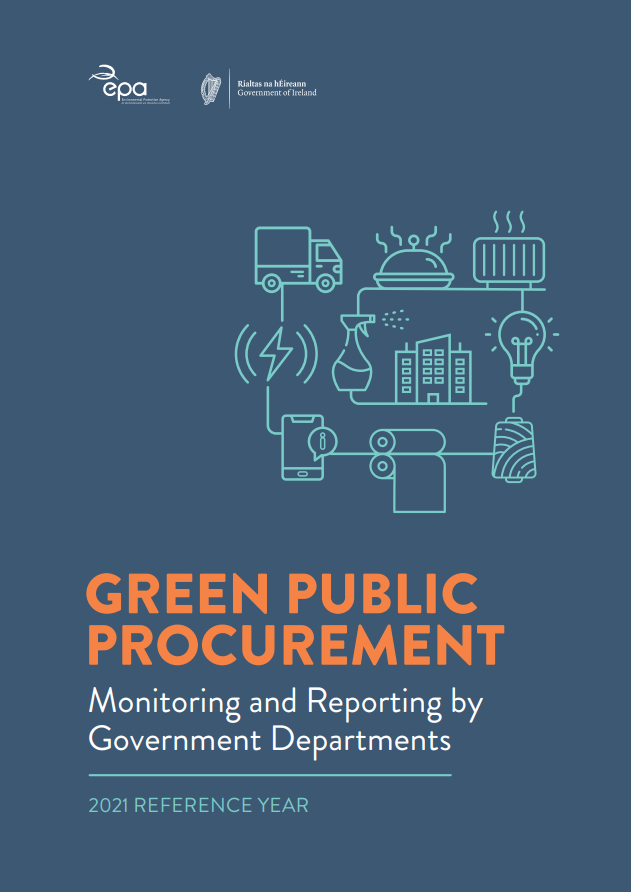
2021 Reference Year , March 2023
Year: 2023
This is the second report on GPP activity by Government Departments, collating and analysing data for the year 2021. The report presents an overview of the process, monitoring and reporting requirements, data collected and a summary of the findings.
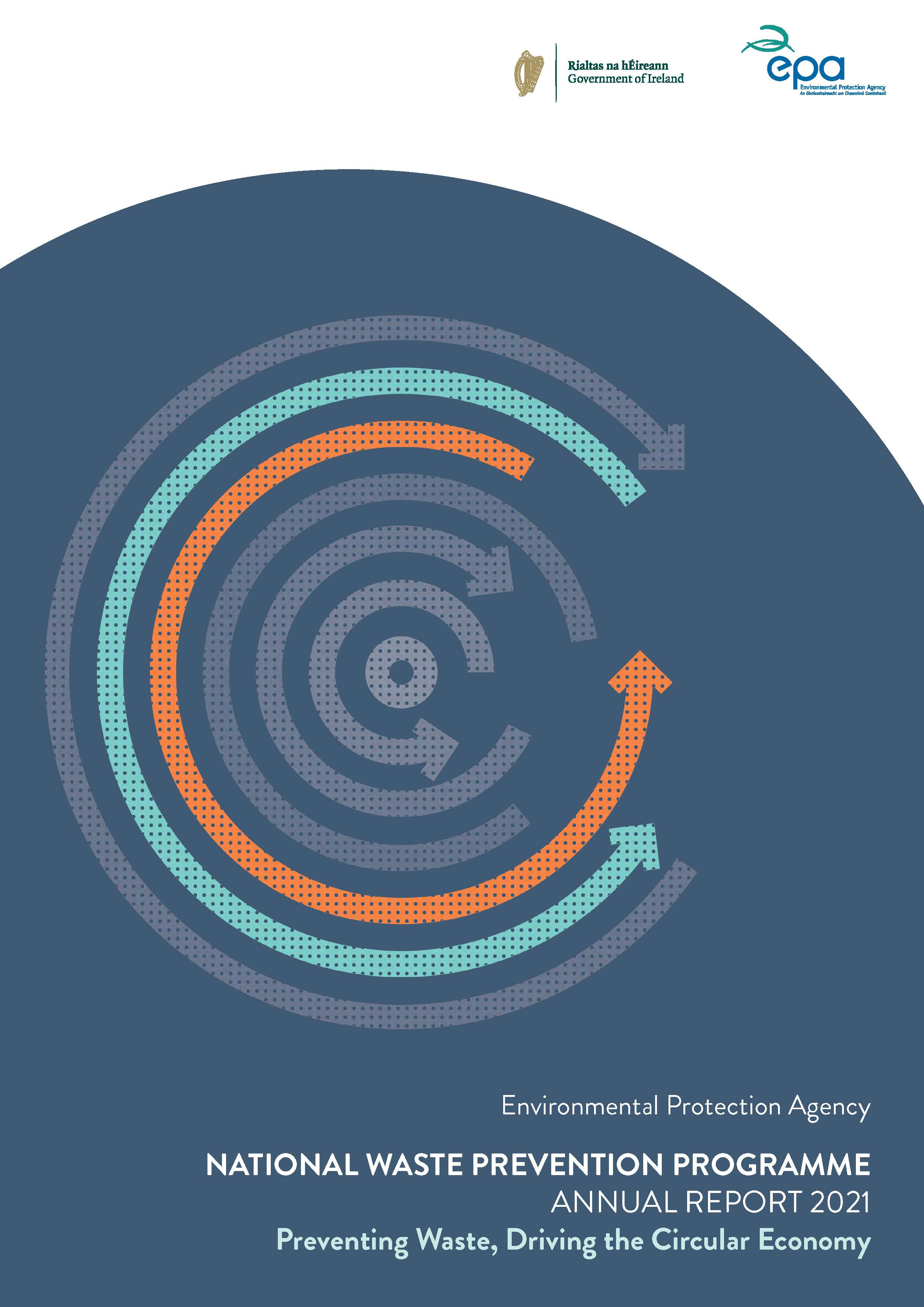
Year: 2023
Overview of progress made on waste prevention projects during 2021
Year: 2023
Green Enterprise project exploring Cradle to Cradle opportunities on Small-to-Medium sized Construction Projects
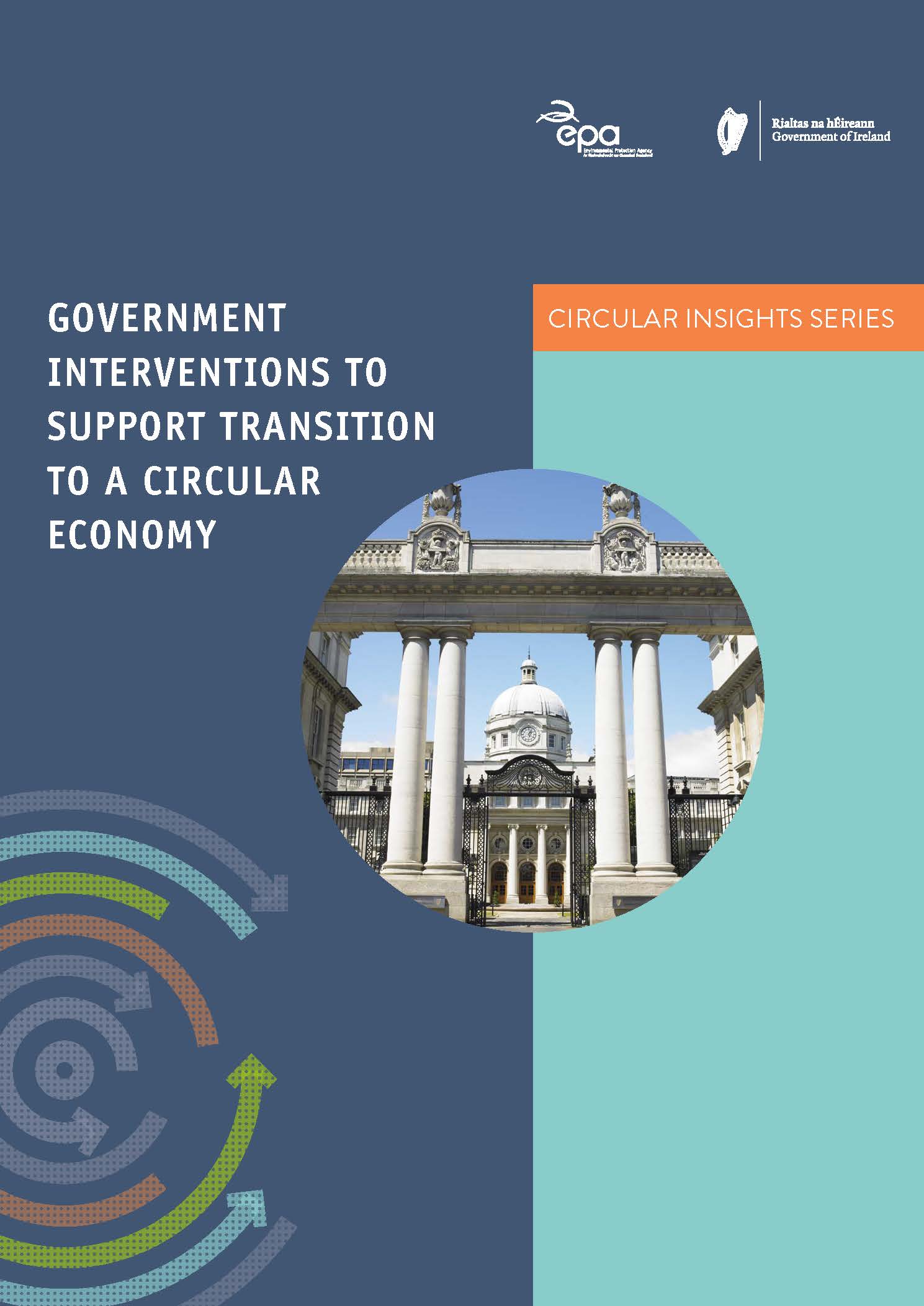
Year: 2022
The circular economy aims to transition away from the traditional ‘take, make, consume and dispose’ linear economy to a circular economy which focuses on keeping resources in use and designing out waste, ultimately supporting the climate and wider sustainability agenda. This study has identified five categories of barriers to the uptake of a circular economy (1) the lack of meaningful data and metrics (2) regulatory (3) financial (4) behavioural, and (5) operational barriers. Stakeholder engagement and extensive desk-based research has been undertaken to identify opportunities for targeted government interventions to overcome the barriers and embed circularity across the Irish economy.
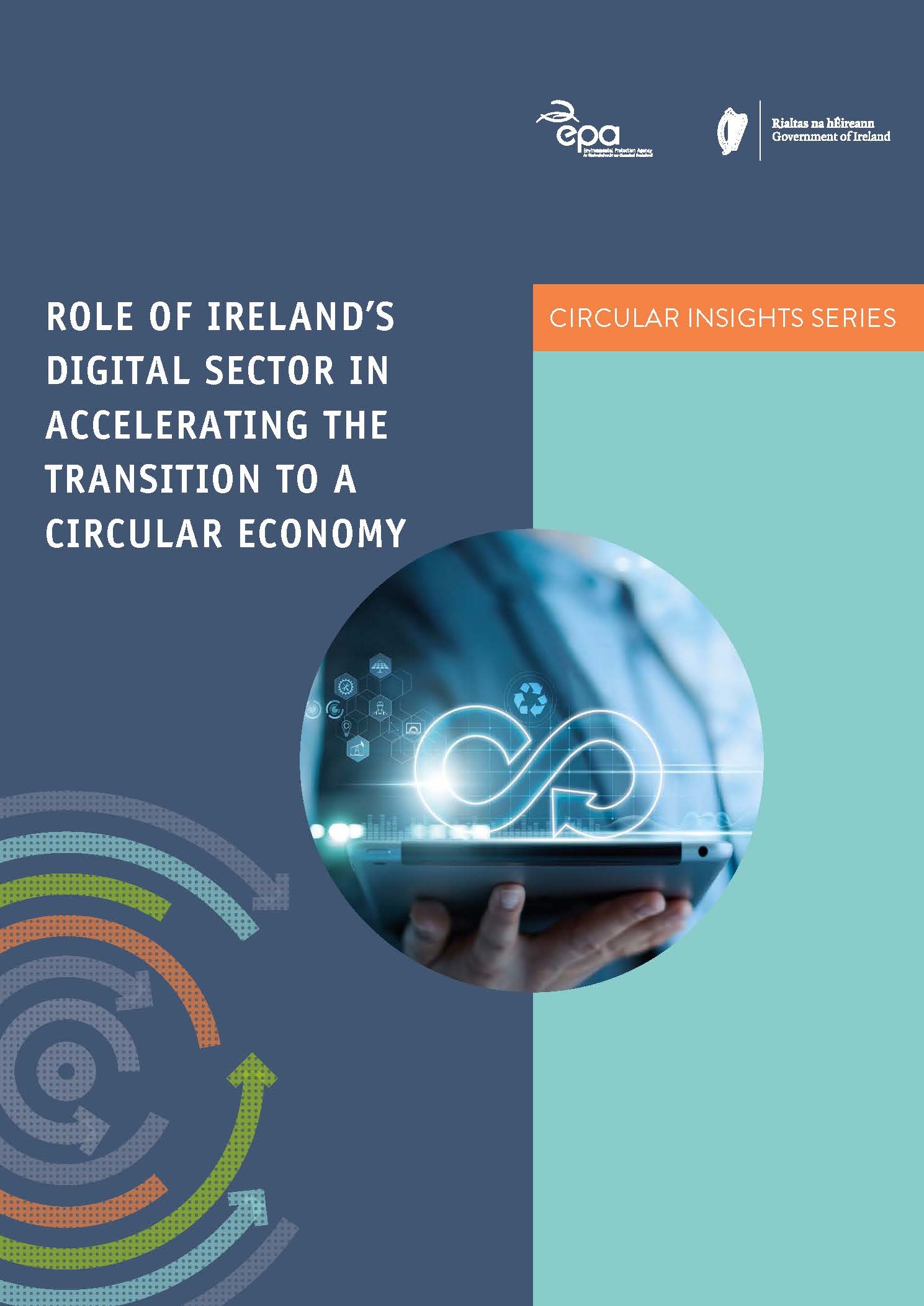
Year: 2022
The circular economy aims to transition away from the traditional ‘take, make, consume and dispose’ linear economy to a circular economy which focuses on keeping resources in use and designing out waste, ultimately supporting the climate and wider sustainability agenda. Digitalisation is identified as a key enabler for accelerating the adoption of a circular economy. Data and digitally-enabled solutions are already being leveraged to improve circularity across economies and there remains significant scope to strengthen this transition globally. Such solutions can optimise value chain management, improve value chain transparency, facilitate dematerialisation and waste-to-resource matching; however, these digital solutions must also be circular by design. The engagement and research undertaken for this paper has informed the development of a suite of recommended opportunities for the public and private sector to accelerate a digitally-enabled circular economy in Ireland.
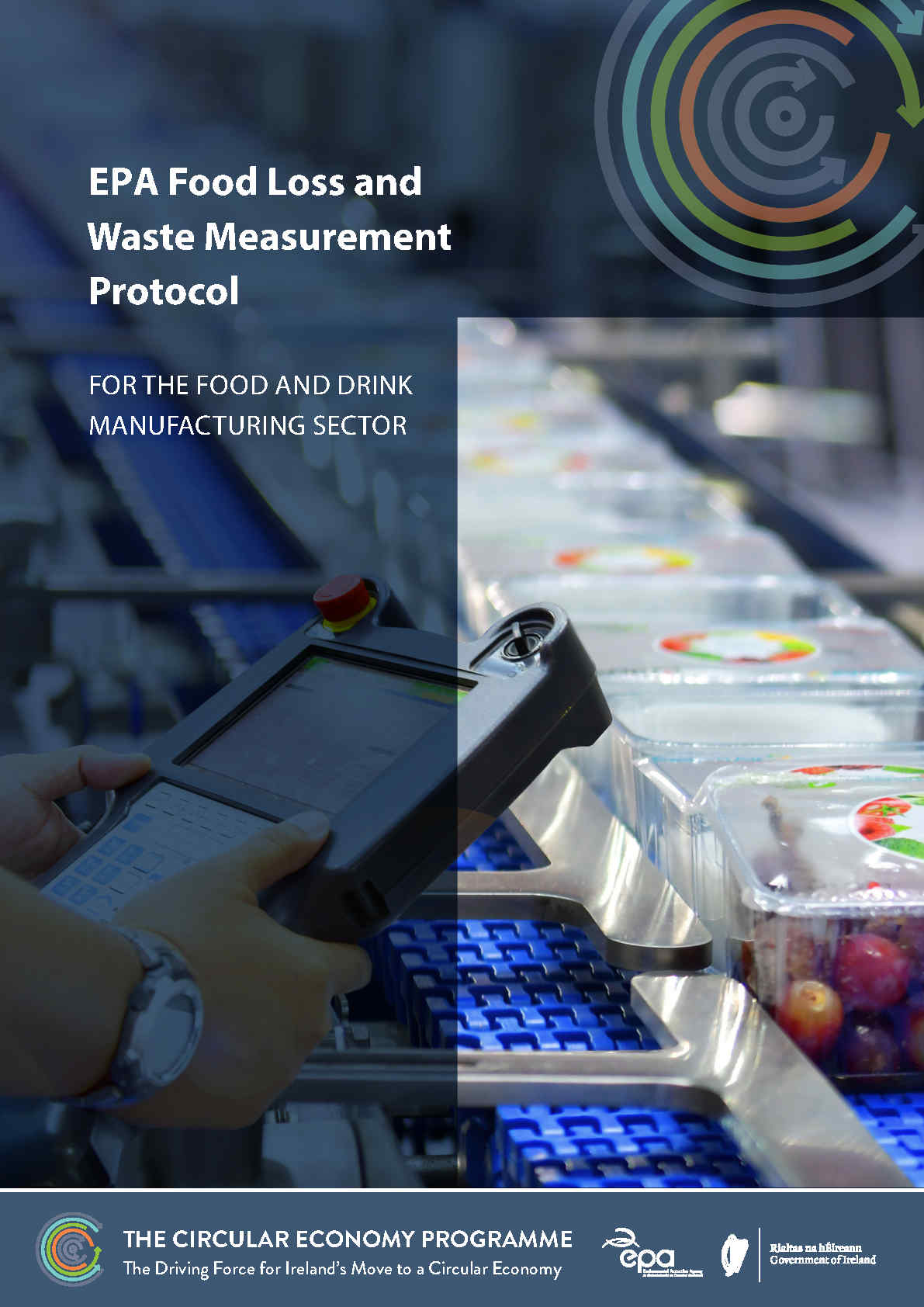
Year: 2022
EPA Food Waste Measurement Protocol to support food and drink manufacturers to identify and quantify their food waste streams and put in place actions to reduce their food waste.
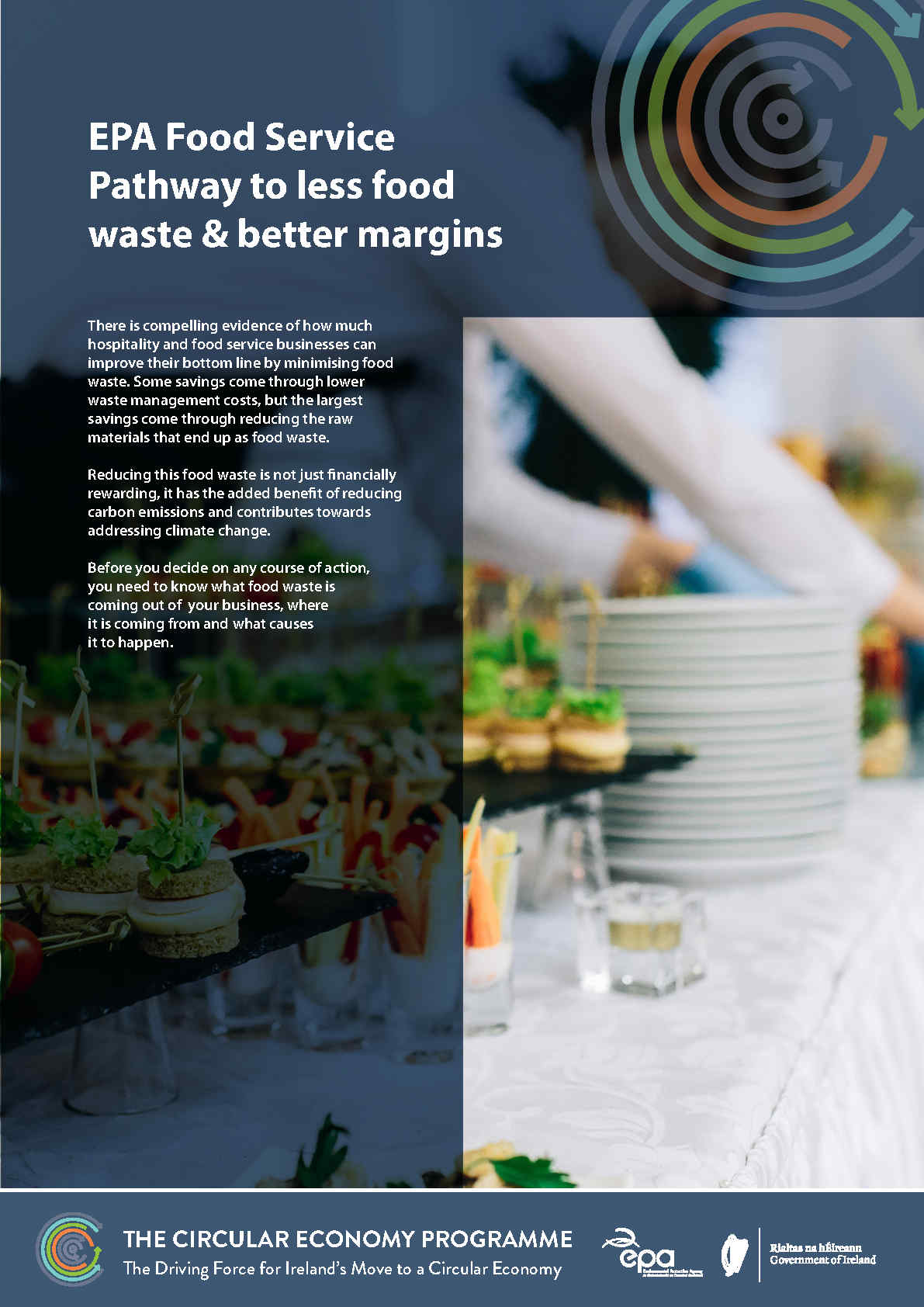
Year: 2022
EPA Food Service Pathway to less food waste is a four-step pathway for hospitality businesses to estimate food waste in a consistent way, track performance & inform food waste reduction decisions.
Year: 2022
Project Objective: To pilot a deposit-return system for reusable cups and food bowls for cafe and restaurant takeaways.
Year: 2022
Project Objective: To develop and pilot a green teams recognition scheme for organisations in Ireland.
Year: 2022
Project Objective: evaluate waste streams from the Irish fruit and vegetable sector for potential new food ingredients.
Year: 2022
Project Objective: To research, develop and pilot a resource for fostering creativity through reuse.
Year: 2022
Project Objectives: Develop a process to mould mixed waste plastics and create a demonstration pallet product.
Year: 2022
Project Objective: To identify and implement international best practice on paint reuse and to expand and streamline paint reuse processing capacity at the Rediscovery Centre.
Year: 2022
Project Objective: to design value-propositions and viable business model(s) for efficiently engaging Irish public sector bodies in diverting unwanted bulky items away from landfill and towards reuse activities and community recycling.
Year: 2022
Project Objective: Develop a reuse quality mark to address consumer concerns about purchasing second-hand goods.
Year: 2022
Project Objectives: To systematically examine the fish production process with a view to reducing process waste.